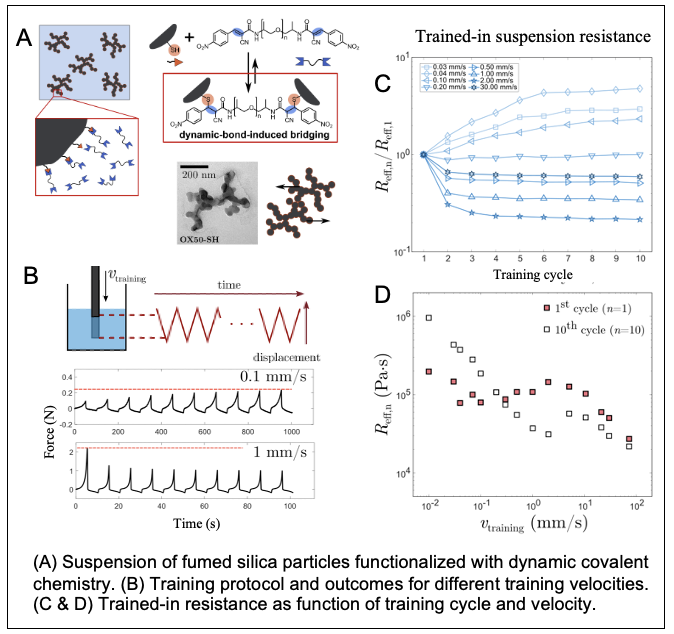 For biological organisms, training is well established as a means of achieving and maintaining targeted levels of performance. In similarly applying training to non-living materials key requirements are the ability of the material to adapt to external cues as well as to retain some memory once the cues are removed. With additional memories more complex responses can then be trained-in.
For biological organisms, training is well established as a means of achieving and maintaining targeted levels of performance. In similarly applying training to non-living materials key requirements are the ability of the material to adapt to external cues as well as to retain some memory once the cues are removed. With additional memories more complex responses can then be trained-in.
Hojin Kim, a postdoctoral scholar working jointly with the Jaeger and Rowan labs, and graduate student Samantha Livermore in Jaeger’s group demonstrated the basic principle with a class of dense suspensions that exhibit two different memories depending on the applied shear stress. Training at appropriately chosen stress levels can then produce strikingly different outcomes, such as a mechanical resistance that evolves under repeated impact by either stiffening or softening.
Such behavior, usually associated with mechanical metamaterials, suggests that dense suspensions with multiple memories can be viewed as trainable rheological metafluids. Memory-forming metafluids could find applications wherever trainable, and in-situ re-trainable, levels of viscosity or energy dissipation are required.
Hojin Kim, Samantha M. Livermore, Stuart J. Rowan, and Heinrich M. Jaeger, Dense suspensions as trainable rheological metafluids, under review (2025).
https://arxiv.org/pdf/2503.09063